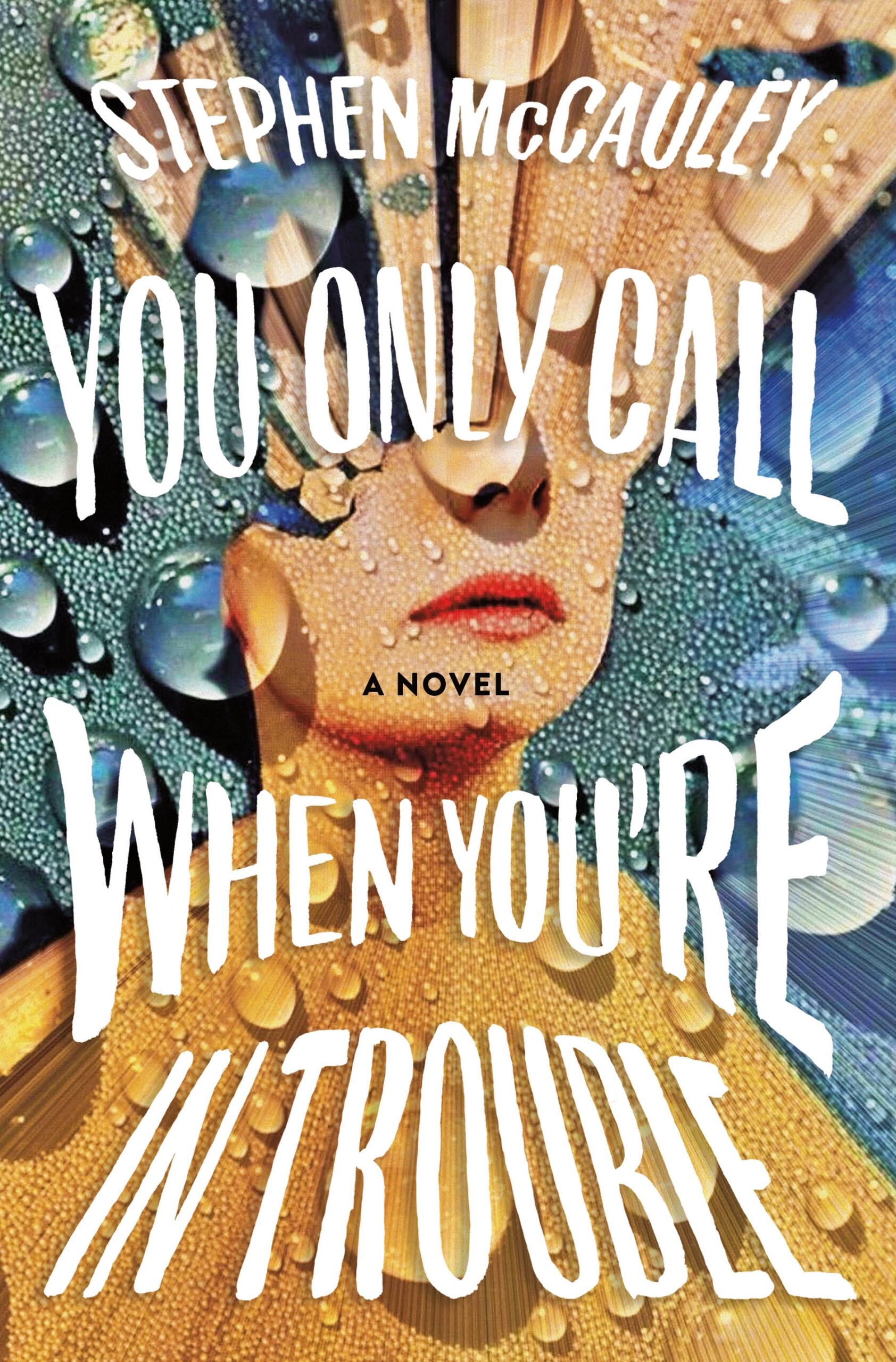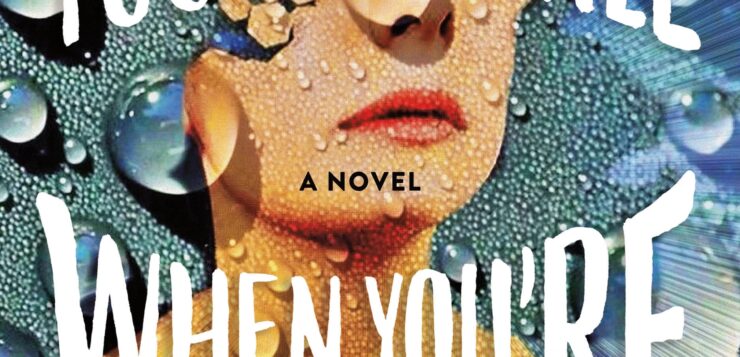 YOU ONLY CALL WHEN YOU’RE IN TROUBLE: A Novel
YOU ONLY CALL WHEN YOU’RE IN TROUBLE: A Novel
by Stephen McCauley
Henry Holt and Company. 336 pages. $27.99
STEPHEN McCAULEY is a novelist whose comedies of manners go back to 1987, when The Object of My Affection came out, followed by a procession of fictional works appearing roughly every five years. All of his novels follow a familiar pattern: A white, gay professional male is having a crisis, is dissatisfied with his life, usually both work and private life. He has straight friends or relatives who are also struggling but want to help the protagonist. Throughout the book, the latest cultural trends are gently satirized with witty dialogue and droll observations on human foibles. (Example: “When someone starts by telling you you can do ‘whatever you want,’ they end up forcing you to do what they tell you.”)
McCauley excels in writing about the everyday, believing that people reveal themselves when they’re dealing with the small details and inconsistencies of their daily lives. In one sense, not much happens in his narratives, yet in a deeper way, everything changes. Affection, commitment, self-interest, and contentment are perennial themes, with characters trying to find their true selves. The resolution usually involves the protagonist undergoing some revelation, discovering poignantly and tenderly that family, home, and friendship are keys to his well-being. He undergoes some low-key transformation—a greater awareness of his flaws, for example—so his novels end on a bittersweet note of ambiguity.
McCauley’s eighth novel, You Only Call When You’re In Trouble, follows this general template, though not in a formulaic way, as we shall see. The novel opens with the free-spirited Dorothy embarking on a risky venture, opening the expensive, over-budgeted Omega Institute, a retreat center in Woodstock, New York (yes, that Woodstock). Her business partner is the bullyish, opportunistic self-help guru Fiona Snow, whose book, The Nature of Success in Successful Natures, was briefly a bestseller after Oprah commented on it. Dorothy neither plans ahead nor worries about the future. She invites her thirty-something daughter Cecily to the gala opening, promising an important revelation. After decades of lying, she’ll disclose the long-hidden identity of Cecily’s father.
Dorothy has also summoned her 63-year-old brother Tom, a gay architect, who’s been her emotional and financial anchor and Cecily’s codependent surrogate father figure. He’s always put himself second to their needs. Unhappily aging, Tom has reached the pinnacle of his career by designing a tiny-house masterpiece (“guesthouses for suburban couples with money and marital issues”) for his wealthy clients Charlotte Morley and Oliver Fuchs, both long-time friends of Dorothy (no, not that Dorothy). Charlotte wants to add a second story, which is opposed by Tom but favored by his boss. “Part of an architect’s job was to praise the client’s brilliance, while showing them they were delusional.” If Tom declines her request, he’ll be fired. To complicate things further, his longtime boyfriend Alan, tired of always playing second fiddle to Cecily, dumps him and moves out. Tom tries to win him back, despite his doubts about marriage. “Monogamy was as unsustainable and unhealthy as a raw food diet and, in the case of male couples, as cloying as matching sweaters.”
Meanwhile, Cecily is facing a Title IX investigation at Deerpath College outside Chicago, where she’s an American Studies professor. She stands accused of having a relationship with Lee, a student who forcibly kissed her, yet despite making those advances, Lee now accuses Cecily of sexual assault. Cecily is suspended from her job while the charges are investigated. Her boyfriend Santosh stands by her, but his prudish Indian mother threatens to banish him from the family if he stays with her. Each of the three main characters is a hot mess, but deft at avoiding the worst possible outcome. Ultimately, the book revolves around Tom’s observation: “At a certain point, you have to accept that your life is the choices you’ve made.”
McCauley shines at showing us the randomness of life, those moments of serendipity that can alter our lives for good or ill, but which also reveal the gray areas where our choices can be unpalatable at best. Yet it’s in this ambiguity and handling dysfunction that our best selves emerge. Once these choices are accepted, McCauley continues, “you better learn to be happy with them.” Notwithstanding their flaws, Tom, Dorothy, and Cecily somehow do find fulfillment in the fruits of their decisions, especially the care and compassion they bestow on each other. With McCauley’s trademark breezy dialogue, shrewd cultural observations (“Gray hair and CVs make for an inherently embarrassing combination, like condoms and senior discounts”), hard-won insights, and laugh-out-loud aphorisms (“he was in a nail-biting race with the planet to see which of them died first”), this moving and bewitching novel can lift your mood or even inspire you to think about becoming a better person.
_______________________________________________________
Brian Bromberger is a freelance writer who works as a staff reporter and arts critic for The Bay Area Reporter.





